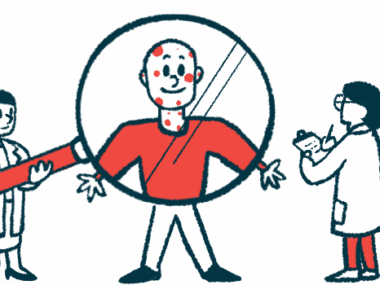New SMArtCARE Online SMA Registry Will Gather Patient Data
Written by |

Researchers have developed a platform called SMArtCARE that allows prospective monitoring of all spinal muscular atrophy patients regardless of their current treatment. The technology has the potential to shed new light on the disease’s natural history and medication’s influence.
A description of the project was published in Orphanet Journal of Rare Diseases under the title “SMArtCARE — A platform to collect real-life outcome data of patients with spinal muscular atrophy.”
For the last 10 years, advancements in medical care, such as non-invasive ventilator support and tube feeding, have improved survival and changed the natural history of spinal muscular atrophy. However, there is still high variability in the care of SMA patients.
Targeted treatments for SMA have been developed in preclinical and clinical studies, several of which have already reached Phase 1-3 clinical trials, including Zolgensma (Avexis, Novartis), currently under priority review by the U.S. Food and Drug Administration, and risdiplam (RG7916, PTC Therapeutics), a potential oral therapy for all types of SMA.
Spinraza (nusinersen) was the first medicine to be approved for treatment of all types of SMA, “based on well-controlled clinical trial data of a small subgroup of pediatric SMA patients,” researchers said.
Despite the existence of several trials of new therapies for spinal muscular atrophy, most patients are not included in randomized controlled studies because of age and disease stage requirements.
Interested in SMA research? Check out our forums and join the conversation!
As such, there is a strong need to monitor “all treated and untreated SMA patients in a real-life environment to optimize treatment and care,” they said.
Researchers have now developed the SMArtCARE database as a disease-specific SMA registry. This trial (DRKS00012699) intends to collect longitudinal data on all available SMA patients (types 1-4) independent of their actual treatment regime, in the hope of better understanding the natural history of the disease and the influence of SMA treatments.
Researchers provide an online platform for SMA patients seen by healthcare providers in Germany, Austria, and Switzerland. Data collection is conducted in addition to the existing SMA patient registry in Germany.
The sponsor of the study is the University Medical Center Freiburg, Germany. However, Biogen is providing the study’s initial financial support. Supervisors of the project include pediatric neurologists and a representative of the SMA patient organization in Germany.
So far, 50 neuromuscular centers have confirmed their participation in the project. Researchers expect data on around 1,000 spinal muscular atrophy patients during the study’s first year.
“Data are collected during routine patient visits. The timing and frequency of follow-up visits and assessments depend on the actual treatment regime. SMA patients are normally seen once or twice a year in a specialized outpatient clinic for neuromuscular diseases. Under treatment with [Spinraza], for example, follow-up visits are scheduled every four months,” researchers said.
Physicians collect data on patients’ sex, age at onset of symptoms, genetic test results including SMN2 copy number, motor function, respiratory function, nutritional status, orthopedic symptoms, pre-existing illnesses, additional therapies, concomitant medication, pain and fatigue complaints, and family medical history.
“Adverse events and the subjective impression of the patient or caregiver are documented. In pediatric patients, growth parameters are recorded during every patient visit,” they said.
Because there are not enough SMA-specific questionnaires, these patients are usually assessed using more generalized surveys that do not accurately measure swallowing, pain, fatigue, and minimal motor function. SMArtCARE will allow scientists to perform validation studies on these novel outcome measures.
“The [online] system of the SMArtCARE database will help to implement recommendations for the care of SMA patients according to the international consensus for standards of care,” researchers said. “We strive to establish a network for neuromuscular centers in Germany, Austria and Switzerland to share experience with SMA patients and to promote research projects using the infrastructure of the SMArtCARE database,” they concluded.



